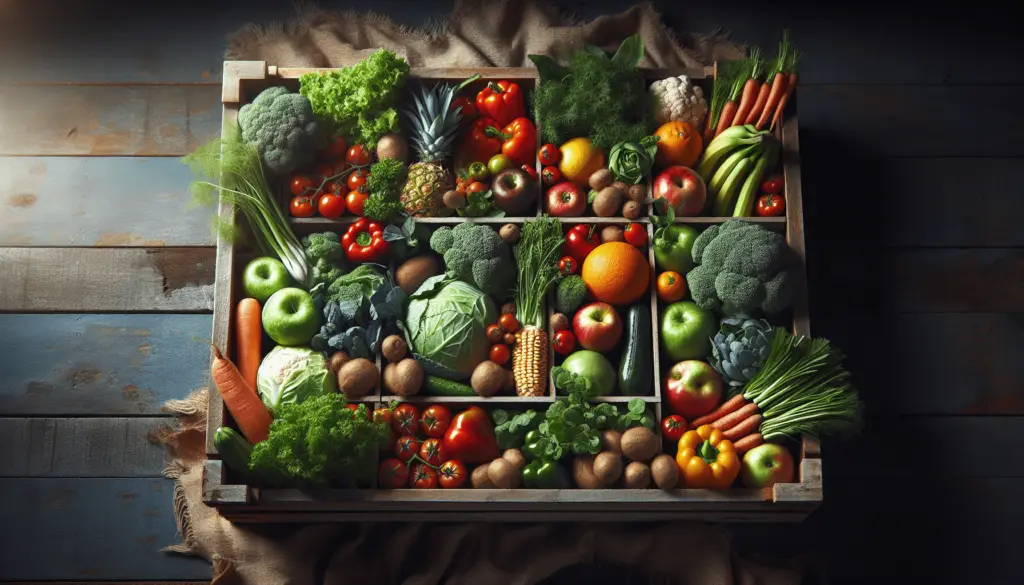Are you a prepper looking to enhance your food security plan?
If you are someone who takes your emergency preparedness seriously, you are likely always looking for ways to improve your food stockpile and overall resiliency. One strategy that you may not have considered yet is Community-Supported Agriculture (CSA). In this article, we will explore the benefits of CSA for preppers like you, and how it can be a valuable addition to your survival plan. Let’s dive into the world of CSA and see how it can benefit you as a prepper.
What is Community-Supported Agriculture (CSA)?
Community-Supported Agriculture, or CSA, is a system in which individuals purchase shares of a local farm’s produce in advance, typically before the growing season begins. In return, shareholders receive regular deliveries of fresh, locally-grown fruits, vegetables, and other farm products throughout the growing season. This model benefits both farmers and consumers by providing farmers with financial support upfront and consumers with a direct source of fresh, healthy food.
How does CSA work for preppers?
As a prepper, participating in a CSA program can offer you several advantages when it comes to building up your food supply. By investing in a CSA share, you are essentially pre-purchasing a portion of your future food needs, ensuring that you will have access to fresh, nutritious produce even in times of scarcity. Additionally, by supporting local farmers through a CSA program, you are helping to strengthen your community’s food system and reducing your reliance on large-scale industrial agriculture.

What are the benefits of CSA for preppers?
1. Access to Fresh, Locally-Grown Produce
By joining a CSA program, you gain access to a variety of fresh, locally-grown fruits, vegetables, and other farm products that are delivered straight to your doorstep or a nearby pickup location. This ensures that you have a diverse selection of nutritious food items available to you throughout the growing season, helping you maintain a healthy and balanced diet even during times of crisis.
2. Support for Small-Scale Farmers
When you participate in a CSA program, you directly support local farmers who practice sustainable agriculture and work hard to provide you with high-quality, seasonal produce. By investing in their farm, you help these small-scale farmers stay in business and contribute to the growth of your local food economy. This support becomes crucial in times of uncertainty when access to large-scale food distribution networks may be limited.
3. Food Security and Self-Sufficiency
By diversifying your food sources and building relationships with local farmers through a CSA program, you enhance your overall food security and self-sufficiency. In the event of a crisis or food shortage, you can rely on your CSA share to provide you with a consistent supply of fresh produce, reducing the need to depend solely on store-bought or packaged food items. This level of preparedness can give you peace of mind knowing that you have a reliable source of food in times of need.
4. Education and Connection to Your Food
Participating in a CSA program can also be a source of education and connection to your food. By receiving regular deliveries of fresh produce, you have the opportunity to learn about different fruits and vegetables, how they are grown, and how to incorporate them into your meals. This hands-on experience can deepen your appreciation for local agriculture and the hard work that goes into producing the food you eat, making you more knowledgeable and self-sufficient in the long run.
How to Find and Join a CSA Program
Now that you understand the benefits of CSA for preppers, you may be wondering how to find and join a CSA program in your area. Here are some steps you can take to start your journey towards becoming a CSA shareholder:
1. Research Local Farms and CSA Programs
Begin by researching local farms in your area that offer CSA programs. You can explore their websites, social media pages, or contact them directly to learn more about their farming practices, available produce, and pricing options. Look for farms that align with your values and priorities when it comes to supporting sustainable agriculture and local food production.
2. Consider Your Food Needs and Budget
Evaluate your food needs and budget to determine the type of CSA share that would best suit your prepping goals. Consider factors such as the size of your household, your dietary preferences, and the amount of fresh produce you typically consume in a week. Some farms offer different share sizes or customizable options to accommodate varying needs and budgets.
3. Contact the Farm and Sign Up
Once you have identified a farm and CSA program that meets your criteria, contact the farm to inquire about availability and sign up for a share. Be sure to ask any questions you may have about the program, such as delivery schedules, pick-up locations, and payment options. Most farms have limited shares available each season, so it is important to secure your spot early to ensure that you can participate in the program.
4. Stay Engaged and Support the Farm
After joining a CSA program, make an effort to stay engaged with the farm and support their efforts throughout the growing season. Attend farm events, volunteer if possible, and provide feedback on the produce you receive to help the farm improve their offerings. By building a strong relationship with the farm and its farmers, you can enhance your overall CSA experience and contribute to the success of local agriculture in your community.

Conclusion
In conclusion, Community-Supported Agriculture (CSA) offers numerous benefits for preppers looking to enhance their food security plan. By participating in a CSA program, you gain access to fresh, locally-grown produce, support small-scale farmers, improve your food security and self-sufficiency, and deepen your connection to your food. To get started with a CSA program, research local farms, consider your food needs and budget, sign up for a share, and stay engaged with the farm throughout the growing season. By incorporating CSA into your prepping strategy, you can build a more resilient and sustainable food supply for yourself and your community.
